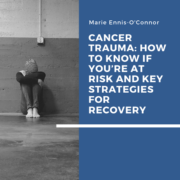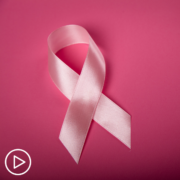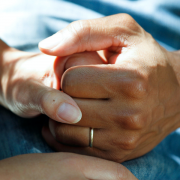Dealing With A Cancer Diagnosis During Your Pregnancy
Every year, nearly 3.7 million babies are born in the USA. While pregnancy and the subsequent birth of a baby is nothing short of a joyous occasion for countless women, there are many others who face various obstacles throughout their pregnancies. Apart from potentially contracting urinary tract infections, hypertension, and gestational diabetes, approximately one in every 1000 women will receive a cancer diagnosis during their pregnancy. Although the risk of being diagnosed with cancer during pregnancy is quite low, the thought of having to fight a potentially fatal disease while awaiting the birth of your baby can be devastating. Apart from placing your trust in your medical team, it is also vital to educate yourself as much about your condition as you can, and do everything in your power to keep you and your baby as healthy and comfortable as possible.
Ask Questions About Your Treatment
Although your medical team will undoubtedly discuss your treatment options with you, it is important that you ask as many questions as you need to fully understand how the treatment will be administered, as well as the benefits and risks associated with it. Some courses of treatment are safer to administer during pregnancy. Surgery is generally the safest treatment, as there is typically limited risk to the fetus. Chemotherapy can also be safely administered during the second and third trimesters. Various bodies of research have found that children who were exposed to chemotherapy while in the womb do not present more health challenges than children who weren’t. It is important to note that you will not be able to breastfeed if you are undergoing chemo, as it may be harmful to your baby.
Be Mindful of the Effects of Your Cancer on the Fetus
Despite in-depth research by some of the world’s top scientists and doctors, it is very hard to predict to what exact extent a cancer diagnosis will affect an unborn fetus. In most cases, cancer itself has no effect on the fetus. There is, however, a possibility that specific cancers such as leukemia and melanoma can spread from the mom to her unborn baby. Your oncologist will be able to provide greater insight into the possibility of this transmission occurring, and also what steps will be taken if it does occur. Once your baby is born they will immediately be checked for early signs of cancer to provide them with the best possible chance of full remission in case of a positive diagnosis.
Focus on Personal Comfort
Personal comfort becomes somewhat of a rare commodity during pregnancy, and especially in the final trimester. As your baby’s movements become stronger during the last few months of your pregnancy, you may also start feeling increasingly uncomfortable. In addition to any pain and discomfort associated with your cancer diagnosis, you may also experience backache, increased heat burn, and overall restlessness while lying down in bed. A warm bath and gentle massage may help to ease back pain, while avoiding certain foods and eating smaller portions can relieve heartburn considerably. Investing in a maternity pillow may be a saving grace if you are unable to comfortably lie down. As these pillows provide support in all the right places for pregnancy, it becomes increasingly easier to relax and drift off to sleep.
Reduce Your Stress Levels
A certain degree of stress is normal during any pregnancy. The excessive stress brought on by a cancer diagnosis can, however, be detrimental to your own health and that of your baby. According to Dr. Ann Borders from the Division of Maternal-Fetal Medicine at Evanston Hospital, severe, chronic stress during pregnancy may result in developmental concerns in babies. There are a number of things a pregnant cancer patient can do to reduce stress. This includes doing regular light exercise, engaging in meditation and other mindfulness practices, and spending time doing things you enjoy, such as reading a book or listening to music. If your stress and anxiety are getting the better of you, your medical team may recommend additional strategies to employ.
Manage Your Fatigue
The majority of pregnant women experience varying degrees of tiredness throughout their pregnancies. A cancer diagnosis can contribute to your tiredness in various ways. Apart from the increased fatigue you are undoubtedly experiencing wreaking havoc with your sleep, your cancer treatment can also leave you feeling increasingly lethargic. Rest as much as you can, and don’t be afraid to ask for help if you need it. Having someone assist you with shopping and preparing meals or offering to look after your children for a night can help you get the rest you need to replenish your energy levels. You may also benefit from a quality prenatal vitamin supplement, especially considering that up to 52% of women experience an iron deficiency during pregnancy.
Eat and Sleep Well
Following a nutrient-rich diet and getting enough sleep is pivotal to a healthy, enjoyable pregnancy. It becomes even more important when fighting cancer. According to the Sleep Foundation, sleep has the ability to help your body heal. It can also help ward off depression and decrease your risk for further medical concerns. Just as your body needs sleep to be healthy, it also requires nourishment. You can benefit both as a pregnant woman and a cancer patient from following a diet that is rich in nutrient-dense foods. Opt for fresh fruit and vegetables, lean protein, dairy, nuts, grains and legumes, and a variety of healthy fats. Steer clear of any processed foods, and limit your sugar intake as much as possible. Also, remember to stay well-hydrated at all times.
Being diagnosed with cancer during your pregnancy is something no one can ever adequately prepare for. Despite how devastating such a diagnosis may be, however, it is important to not only work closely with your medical team, but also make the necessary lifestyle changes that will help give you and your unborn baby the best chance at health and happiness.










